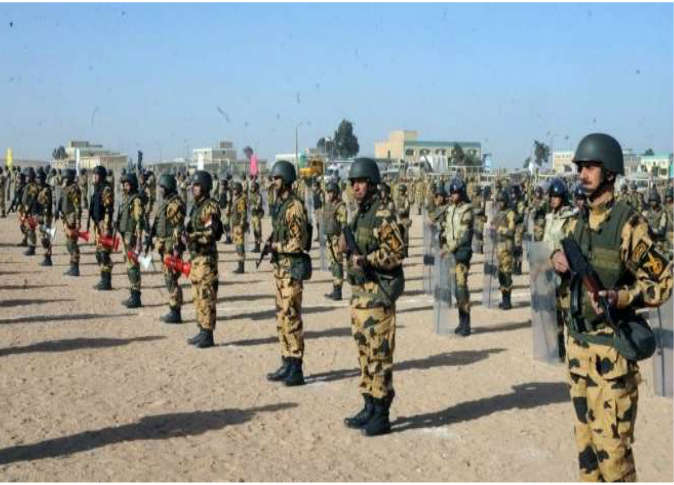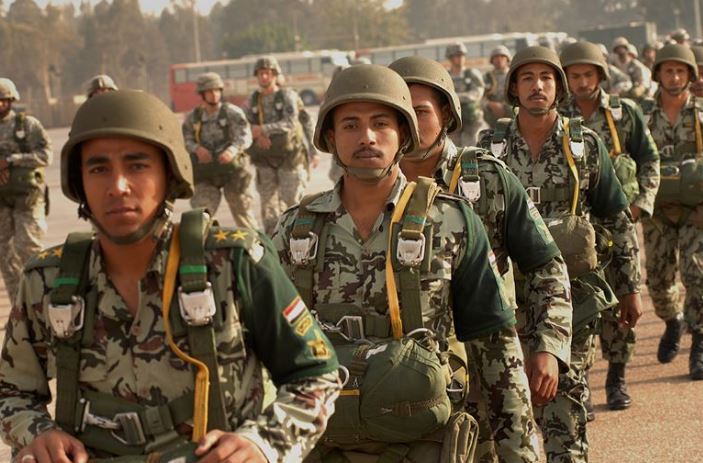Local and foreign journalists, NGO employees, protesters and social workers have been subject to a crackdown by plainclothes and uniformed policemen, armed thugs, and pro-Mubarak supporters, who all seemed to be working in tandem.
Meanwhile, tens of thousands of anti-Mubarak protesters are arriving to join the thousands who spent the night in Tahrir Square, preparing for the mass demonstrations planned for today, which has been dubbed the “Friday of Departure.”
Uniformed policemen–who have been out for two days organizing traffic–reappeared in large numbers for the first time since 29 January. On 28 January they were defeated by anti-Mubarak protesters after day-long clashes.
The office of the Hisham Mubarak Law Center, which has been entirely dedicated since the demonstrations began on 25 January to protesters' legal cases, was raided by plainclothes individuals and military police last night.
“One hundred thugs surrounded the building and military police arrested 30 members of our team–four staff and the rest volunteers–as well as taking many of our computers,” said Ahmed Ragheb, who heads the center.
Ragheb, who happened to be out at Tahrir Square at the time of the raid, said he has not heard any reports of violence during the incident, but has yet to obtain any information about the whereabouts or condition of those detained.
The center, which has dealt with 900 cases in the last ten days alone, has never been raided in this way before. Ragheb has not received any official reason or charges from police.
Scores of foreign journalists were detained and harassed on Thursday by security officials who stormed their hotel rooms, while others were attacked on the streets. Many were accused of being foreign agents bent on distorting the truth and portraying a false image of Egypt. Max Strasser, a freelance journalist who had worked in Egypt for over a year, was approached by many civilians at an army checkpoint and in plain view of the military as he tried to cross Gala bridge on his way to Tahrir.
“We were swarmed all of a sudden by civilians who were chanting “Hosni!” at us very aggressively. Some of them were kids,” he said.
Freelance reporter Mohamed Dahshan was in a cab going from Tahrir to his Heliopolis home before the 4:30 PM curfew, when he was stopped at a checkpoint set up by thugs in the Magra El Oyoun area.
“Upon seeing my laptop and camera, they claimed I was a foreign agent–by associating the laptop with the internet–and started beating me,” he said. Dahshan identified himself as a journalist, but on seeing their negative reaction he went back on his statement and claimed to be a newspaper translator, thinking it would help. It didn’t.
“They beat me while the military watched and then took me to a military checkpoint.” The military then put him in an ambulance with soldiers and detained him at Zinhom military base.
“The military did not assault me physically, but an officer did eventually smash my phone.” While he wasn’t under official military detention, army officers made sure he didn't leave by keeping his possessions and ID. Dahshan was handed to a neighborhood patrol who he said treated him well.
At midnight an army officer gave Dahshan the remains of his possessions, but kept his ID. The army officer who released him advised him to “not go back to the protests, or else they will arrest [you] again.”
Meanwhile, Yasmina Abou Youssef, a social worker, was driving up Qasr al-Aini Street to Tahrir Square with first aid supplies for the medical clinics there when five thugs with “arm-length swords and machetes,” two uniformed policemen, and some pro-Mubarak supporters intercepted her.
“They started taking the supplies out of the car and told me I could not take the supplies with me… getting really angry in the process,” she said. A few who approached were regular civilians who she thinks had been made to believe that the protests are the work of foreign agents. She had heard that others travelling with medical supplies had also been attacked and robbed, but decided to go anyway.
Abu Youssef, who runs a social organization in Cairo, had a list of those on the organization's payroll in her car. Men stopped her and upon finding the list decided it was names of people in Tahrir Square who she was going to pay to protest.
“They accused me of being employed by foreigners, which is bizarre because before this January, I was never involved in anything remotely political.”
They sat her in the back of her car, sandwiched between two thugs, while they vandalized the vehicle and nanded her over to the military as a prisoner. “The military men released me, but of course I never got back the first aid supplies and was forced to leave the area.”
Many similar incidents have been reported by witnesses as bringing any form of aid to the protesters was strictly forbidden.




